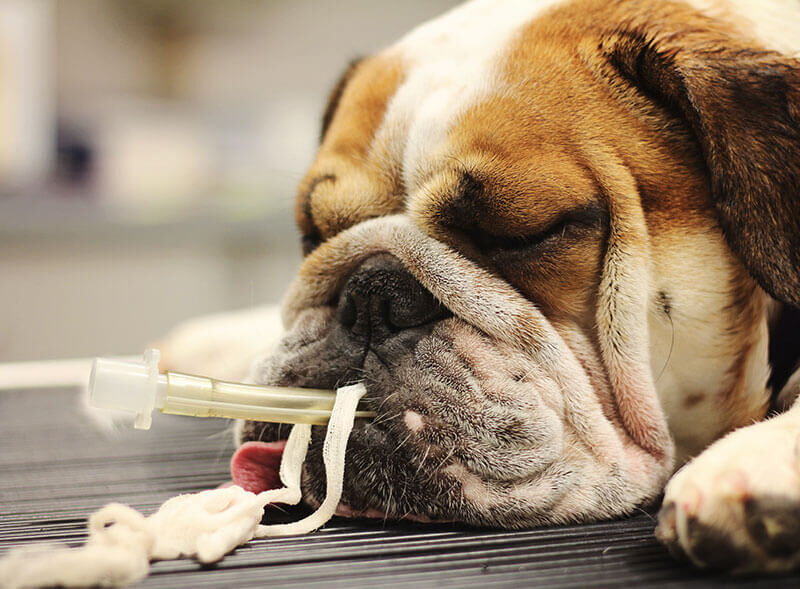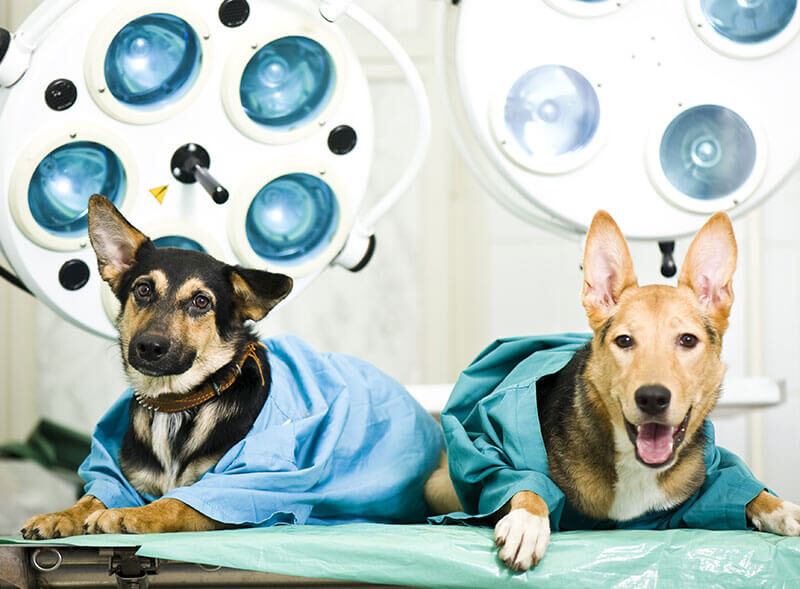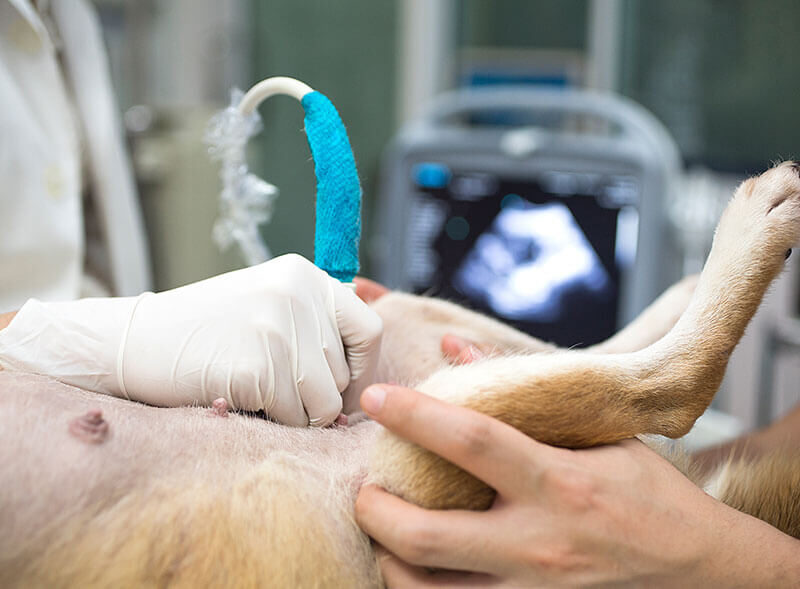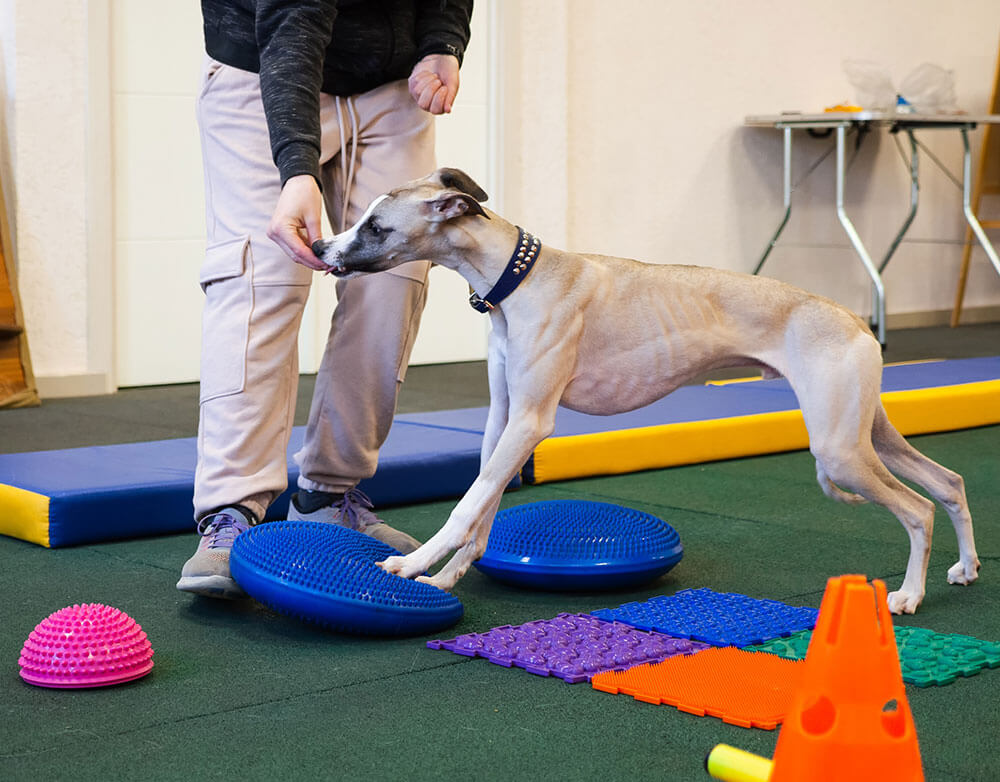
Canine Rehabilitation
Rehabilitation treatments are an excellent adjunct to traditional veterinary medical treatments, and can often provide additional pain relief, promote healing, and decrease recovery time by promoting mobility, flexibility, strength, and stability. One of the primary advantages of therapeutic exercise is the increase in range of motion, allowing pets to regain their mobility and perform daily activities with greater ease. Additionally, therapeutic exercises enhance flexibility, enabling pets to move more freely and comfortably and hence also enable pets to engage in physical activity for longer durations. Furthermore, it will aid in enhancing balance or proprioception, resulting in better coordination and stability. Our aim is to strengthen muscles, promote overall physical fitness and prevent future injuries.
Laser Therapy
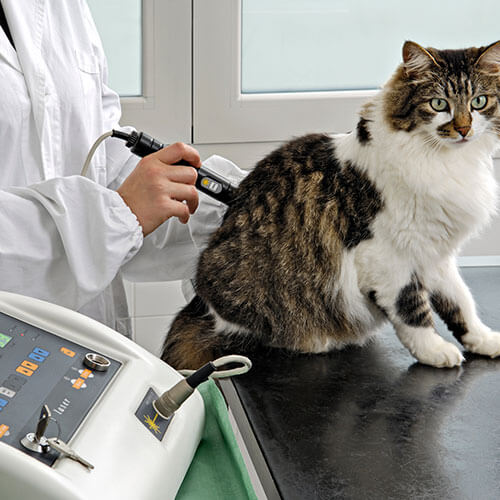
Procedure Overview and Working Mechanism
Laser Treatment Procedure
How It Works?
Laser therapy is administered through a handheld laser wand that is waved slowly over the top of the affected or damaged area. The tissue is warmed up by the laser slightly, producing warmth that many animals find pleasant and relaxing. Usually, the sessions don’t take any longer than 20 minutes and, as it doesn’t require sedation, your pet can go home straight away.
Multiple sessions may be required to experience the full benefit of the treatment and depends on the severity of the initial injury. Some conditions may require 4-6 weeks of treatment in order to experience the full therapeutic benefit. Our vet will work with you to develop a personalized treatment plan during your visit.
Your Questions Answered!
Is laser therapy safe for pets?
Will my pet benefit from laser therapy?
- Orthopaedic conditions Post-surgery pain
- Neurological conditions
- Tendon and ligament pain Arthritis
Should I speak to my vet about laser therapy?
You don’t have to wait for your veterinarian to suggest laser therapy to have a conversation about the options available for your pet. Whether your pet has chronic pain or you want to help relieve muscle soreness, work with your veterinarian to discuss what laser therapy plan is best for your pet, because every animal is different.
A few examples of why you may want laser therapy for your animal include:
Your pet just had an orthopedic surgery and you want to help alleviate pain and inflammation in the acute phase or your pet isn’t improving or has had slow recovery from any orthopedic surgeries whether it be poor wound healing, pain, muscle soreness or other soft tissue compensatory issues. You have an older pet with arthritis.Lameness from overuse injury, repetitive or chronic injuries of the body that may have developed over time or your pet has sustained a traumatic event such as a fight, fall, or jump. Neurological event such as a stroke or disc problem resulting in mobility impairment.The best thing to do is to talk to your vet about what is going on with your pet and work with them to come up with the best plan going forward.
Does my pet need an exam before they are approved for laser?
We prefer to have an examination done before going ahead with pet laser therapy to ensure that your pet is getting the best treatment possible. Provided your pet has had an exam completed within the last year, we are able to organize a laser therapy plan to help with whatever concerns you have for your beloved animal.
If you think your pet would benefit from laser therapy, the team at Animal Medical Centre is here to help. Give us a call on (03) 9762 2555 for more information, or book an appointment with one of our veterinarians to discuss a laser therapy plan for your pet.







